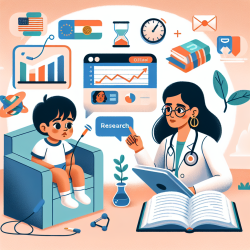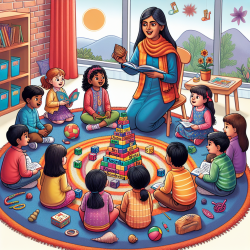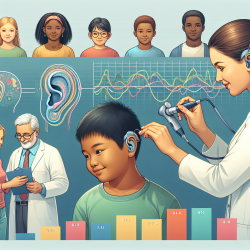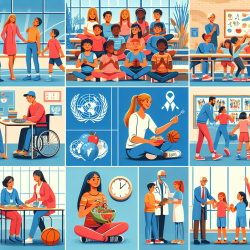The impact of policy changes, such as the potential banning of abortion, has far-reaching consequences, especially on marginalized populations. While the direct subject of this blog may seem tangential to speech-language pathology, the underlying principles of evidence-based practice and the need for targeted support in vulnerable communities are directly relevant. This blog will explore how findings from the research article "What will and won’t happen when abortion is banned" can inform and enhance online therapy services for children, particularly those from disadvantaged backgrounds.
Understanding the Research
The research article by Oberman (2022) offers an evidence-based assessment of the implications of banning abortion, highlighting three primary assumptions:
- Banning abortion will deter it.
- Bans will send a message about the immorality of abortion.
- Bans will be competently implemented and enforced.
The findings suggest that restrictive abortion laws do not significantly reduce abortion rates but disproportionately impact poor women of color and their children. These insights underscore the importance of addressing structural inequalities and providing comprehensive support to vulnerable populations.
Applying Research to Online Therapy
As practitioners in speech-language pathology, we can draw several lessons from this research to improve our online therapy services for children:
1. Data-Driven Interventions
Just as the research emphasizes the importance of empirical evidence, we should prioritize data-driven decisions in our therapy practices. Regularly collecting and analyzing data on therapy outcomes can help tailor interventions to meet the specific needs of each child, ensuring more effective and personalized support.
2. Addressing Structural Inequalities
The research highlights the disproportionate impact of abortion bans on marginalized communities. Similarly, children from disadvantaged backgrounds may face additional barriers to accessing quality therapy services. By recognizing these structural inequalities, we can advocate for and implement policies that ensure equitable access to online therapy for all children, regardless of their socioeconomic status.
3. Comprehensive Support Systems
The study calls for a holistic approach to support, including financial assistance, job security, and childcare. In the context of online therapy, this translates to providing comprehensive support to families, such as:
- Offering flexible scheduling to accommodate parents' work hours.
- Providing resources and training for parents to support their child's therapy at home.
- Collaborating with schools and community organizations to create a supportive network for the child.
Encouraging Further Research
The article by Oberman (2022) serves as a reminder of the importance of continuous research and evidence-based practice. As speech-language pathologists, we should stay informed about the latest research in our field and be open to integrating new findings into our practice. Encouraging further research on the impact of socioeconomic factors on therapy outcomes can lead to more effective and inclusive interventions.
Conclusion
Incorporating the insights from "What will and won’t happen when abortion is banned" into our online therapy services can enhance our ability to support children from all backgrounds. By making data-driven decisions, addressing structural inequalities, and providing comprehensive support, we can create better outcomes for the children we serve.To read the original research paper, please follow this link:
What will and won’t happen when abortion is banned.










